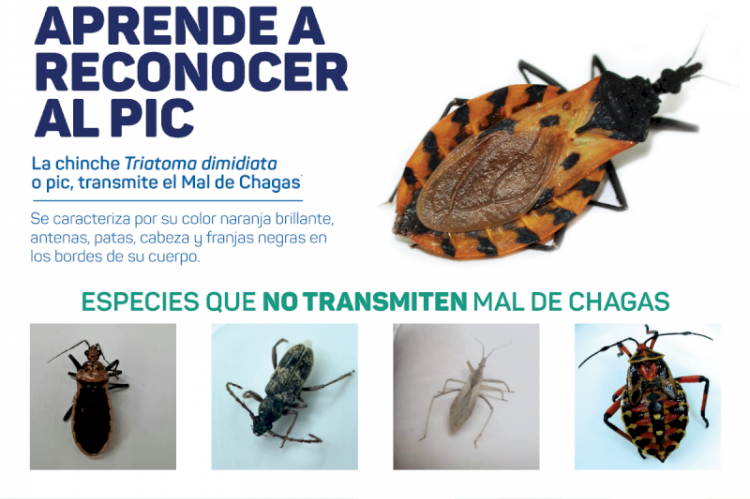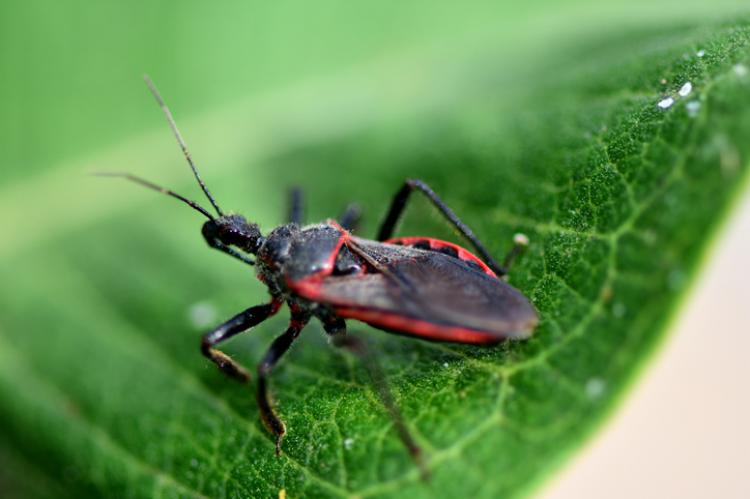📰 Chagas Disease Creeps Closer: Why Belize Must Wake Up to the Public Health Threat in Yucatán
By: Omar Silva I Editor / Publisher
National Perspective Belize – Digital 2025
Monday 21st April 2025
Belize City, Belize – A recent study by the Universidad Autónoma de Yucatán (UADY) has sounded a loud alarm: more than 16,000 people in the Mexican state of Yucatán may be silently infected with Chagas disease, a parasitic illness caused by Trypanosoma cruzi, transmitted primarily through the bite of the “kissing bug” (Triatoma dimidiata). With an estimated prevalence rate of 0.69%, Chagas disease has become a silent but growing public health crisis just north of Belize’s border.
And Belize should take note—urgently.
🇧🇿 The Belize Connection: Geography and Exposure
The Yucatán Peninsula and Belize share similar ecosystems, climate conditions, and rural housing infrastructure. The northern districts of Belize—particularly Orange Walk and Corozal—are less than seven hours from Mérida, where UADY conducted its study. These regions are also potential habitats for the same vector insect, which thrives in thatched roofs, cracks in walls, and rural areas where livestock is present.
In fact, the first known acute case of Chagas disease in Belize was identified in a child in the north, with further studies revealing new species of Triatoma insects closely related to the kissing bug, highlighting the presence and possible expansion of this vector within Belize.
🦠 A Silent Disease with Deadly Consequences
Chagas disease is known for its long asymptomatic period, making detection extremely difficult. According to UADY’s findings:
- Acute Phase: May show no symptoms or only mild ones—fever, swollen lymph nodes, muscle aches, abdominal pain, or swelling at the site of the bite. Often mistaken for a cold or flu.
- Chronic Phase: Years or even decades later, patients can develop serious cardiac and digestive complications—persistent fatigue, palpitations, chest pain, swelling of legs or abdomen, and difficulty breathing.
This makes Chagas a time bomb, potentially overwhelming health systems if left unchecked.
🧪 Vaccine Research and Prevention Efforts in Mexico
UADY, through its Dr. Hideyo Noguchi Regional Research Center, is actively working on a vaccine currently in its third phase of clinical trials. Meanwhile, the Secretariat of Health in Yucatán has launched multiple preventive campaigns, including:
- Insecticide spraying in high-risk zones
- Installation of bed nets and window screens
- Food hygiene and home sanitation education
- Free medical screenings for vulnerable populations
- Use of antiparasitic medication, which is most effective when administered in the early stages of infection
These efforts reflect a proactive approach that Belize could adopt before the disease crosses more aggressively into national territory.
🚨 Time for Belize to Act
Despite its known presence, Chagas disease remains underreported and under-monitored in Belize, especially in rural communities. There are no large-scale vector control programs, no education campaigns specific to Chagas, and public awareness is extremely low.
Belizean health authorities must now ask:
- Are we monitoring high-risk zones, especially in the north?
- Is our public health infrastructure ready for detection and treatment?
- Are we cooperating with Mexican authorities on vector surveillance and knowledge exchange?
🧭 A Call for Cross-Border Vigilance and National Preparedness
Chagas disease does not respect borders. As cases rise in Yucatán, Belize must develop a binational and regional health strategy, increase investment in rural public health education, and implement community-based preventive measures—from proper home sealing and netting to improved sanitation and early blood screening.
This is not a hypothetical threat. It is a clear and present danger, especially for our rural populations who are often the least informed and the most exposed.
Belize cannot afford to wait.
🩺 If You Suspect Chagas or Experience Symptoms:
- Visit your nearest public health center or hospital.
- Request medical attention if you experience prolonged fever, fatigue, swelling, or heart-related symptoms.
- If living in rural or bushy areas, ensure your home is sealed against insects, and install protective netting.
🖋️ Sources: * Universidad Autónoma de Yucatán (UADY), Secretaría de Salud de Yucatán, Pan American Health Organization, Ministry of Health & Wellness (Belize), and peer-reviewed entomological journals.
- Log in to post comments


